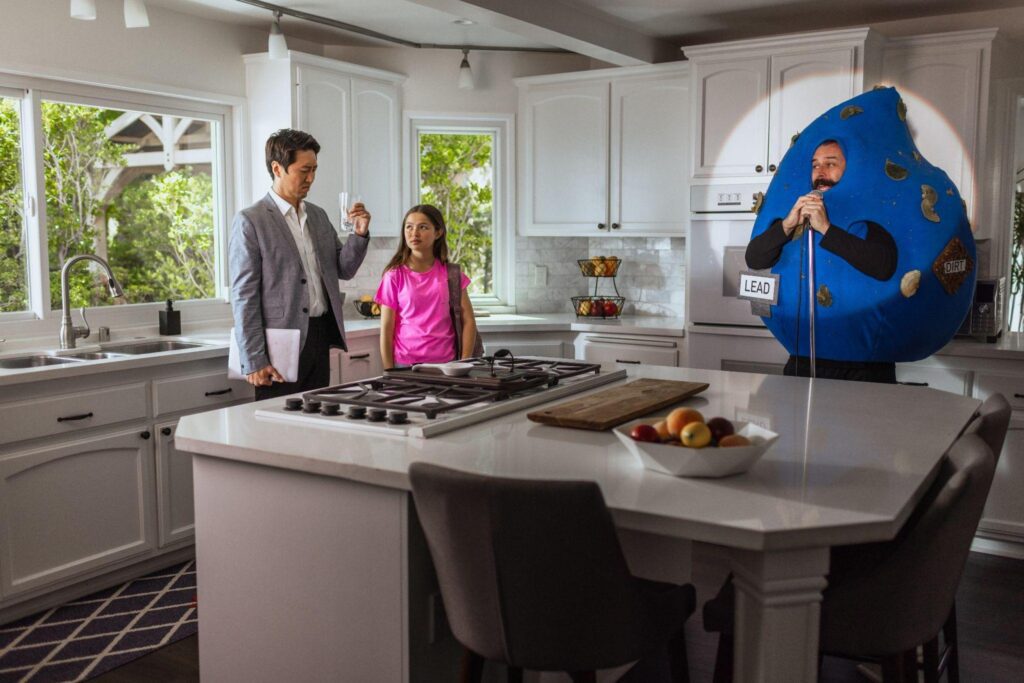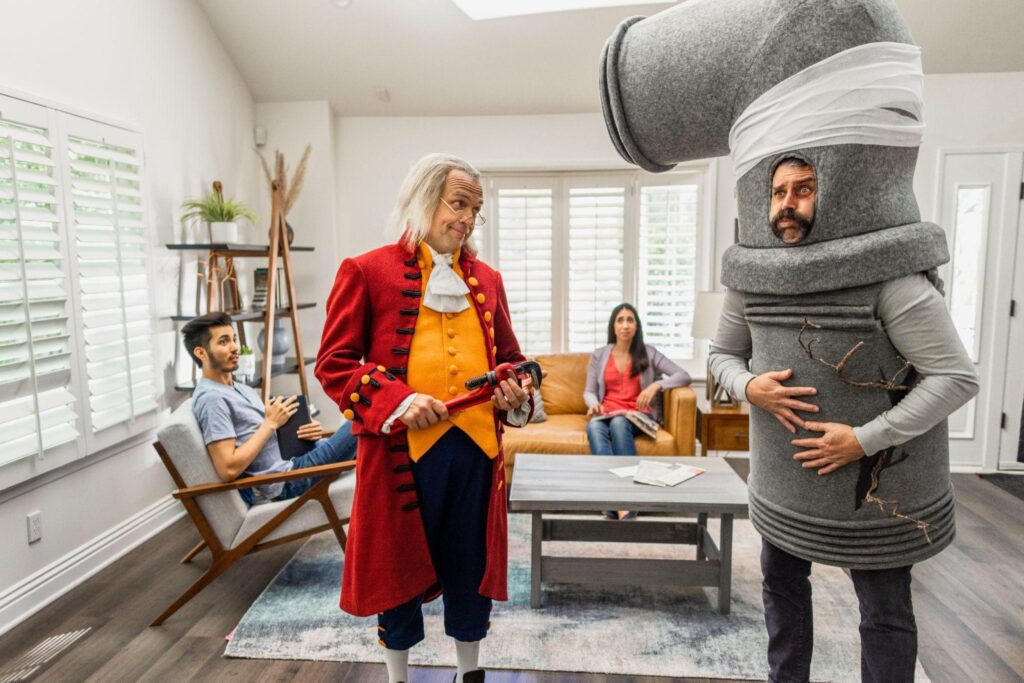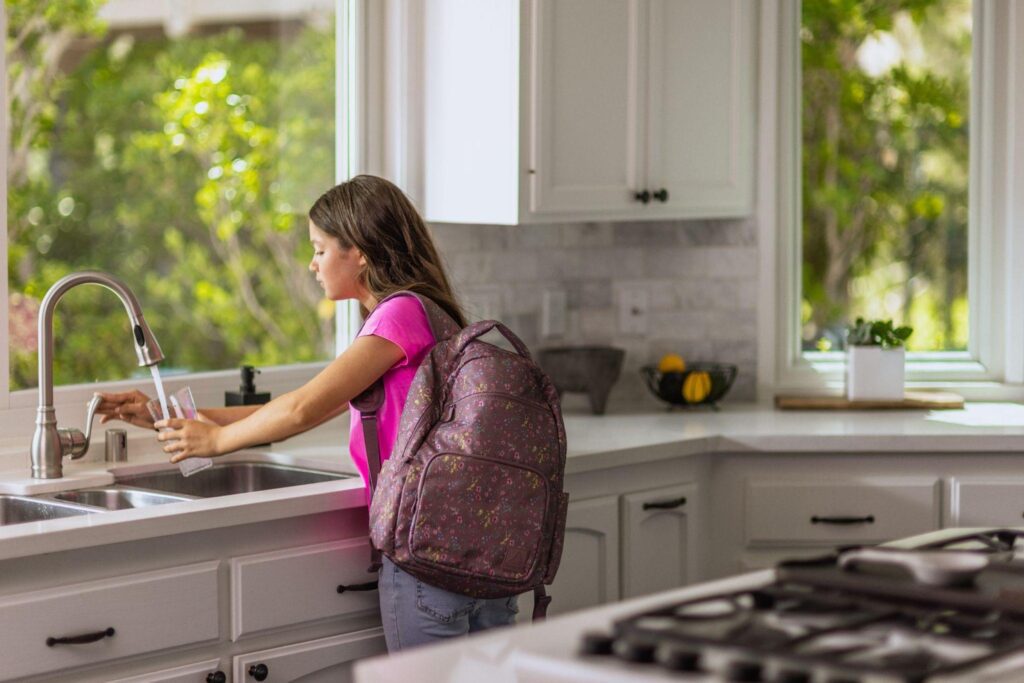| Soft Water vs Hard Water |
|---|
What Is Hard Water?
Approximately 85% of the water in the U.S. falls under the category of hard water. But what exactly is hard water? Simply put, hard water refers to water with high levels of calcium and magnesium, which means it contains a significant amount of dissolved minerals. These minerals can impact the quality of your drinking water and have implications for your water supply, home, and appliances.
If you’re unsure about what it means to have hard water, you’re not alone. Many people are unaware of its effects, but today, we’ll clarify everything for you. What are the key differences between soft water vs hard water? And how do you identify the signs of hard water in your daily life?

How To Test For Hard Water
There are a few different ways to test for hard water. Here is a step-by-step guide on how to test for hard water using a water testing kit:
- Collect a sample: Collect a sample of the water you want to test. You can take it directly from the tap or use a clean container to collect the sample.
- Prepare the testing kit: Follow the instructions provided with your water testing kit to prepare it for use.
- Perform the test: Most water testing kits use color-changing strips or reagents to indicate the hardness level. Dip the testing strip or apply the reagent to the water sample as instructed by the kit.
- Read the results: After the designated time (usually a few minutes), compare the strip’s color or the reagent reaction’s result with the color chart provided in the testing kit.
- Interpret the results: Based on the strip’s color or the reagent reaction’s intensity, you can determine the hardness level of the water sample. The hardness level’s typically measured in parts per million (ppm).
Water hardness is classified based on the mineral content of calcium and magnesium as follows:
- Soft water: Less than 17 ppm
- Slightly hard water: 17 to 60 ppm
- Moderately hard water: 60 to 120 ppm
- Hard water: 120 to 180 ppm
- Very hard water: Greater than 180 ppm
You can also conduct a soap test if you want a rough indication of water hardness. Just add a few drops of liquid soap or detergent in a clean, transparent bottle or glass. Fill the container with water, put the lid on, and shake it vigorously. It will likely be soft if the water lathers easily and produces many bubbles. In contrast, it may be hard water if the water produces only a few suds or none. The contrast between soft water vs hard water is noticeable.
Is Hard Water Bad For You?
Although hard water is generally not harmful to your health, it can have several adverse effects on your daily life. Water with high levels of magnesium and calcium can harm your appliances and belongings more than your physical health.
You’ll often see unsightly mineral deposits around your plumbing fixtures. As well as higher water bills this is due to calcium buildup in your pipes, causing your pipes to work harder by increasing water pressure. Hard water buildup can also cause frequent plumbing repairs and shorten the life of appliances such as water heaters.
Besides that, hard water can cause your washing machine to fade your clothes and cause your dishware to develop white spots after cycling through your dishwasher. But that doesn’t mean that hard water isn’t harmful to your skin and hair.

Can Hard Water Cause Hair Loss?
It’s believed that hard water can cause dry skin and further hair loss. While there isn’t concrete scientific evidence linking hard water to hair loss, excessive mineral deposits can make hair brittle and more prone to breakage. You can avoid this completely by using water softeners to protect your hair and skin.
How To Clean Hard Water Stains?
Hard water can leave unsightly stains on fixtures, appliances, and other surfaces (not to be confused with soap scum). To combat these stains, you can use a mixture of equal parts water and vinegar to dissolve the mineral deposits. Apply the solution to the affected areas, let it sit for a few minutes, then scrub the stains away with a non-abrasive brush or sponge.
How To Remove Hard Water Stains From Glass?
Glass surfaces, such as shower doors and windows, are particularly susceptible to hard water stains. To remove these stains effectively:
- Create a paste using baking soda and water.
- Apply the paste to the stained glass and gently scrub in circular motions.
- Rinse thoroughly and repeat if necessary until the stains are gone.
- Stop cleaning hard water stains; let Benjamin Franklin Plumbing Tyler help by professionally installing a soft water system. You can also use hard water filters for temporary relief until you install a permanent soft water system.
You’ll be shocked by the change and truly see the difference between soft water vs hard water.
How To Choose A Water Softener For Your Home
Investing in a water softener can help mitigate the effects of hard water in your household. When selecting a water softener, consider factors like water hardness level, water usage, and household size. Look for reputable brands and models with sufficient capacity to handle your water needs. Skip the stress and let your local Benjamin Franklin Plumbing pros in Tyler, Longview, and Whitehouse do the work for you.
What Size Water Softener Do You Need For Your Home
You’ll need to do some math to figure out what size water softener you need.
- Calculate your home’s daily water usage (60-70 gallons a person).
- Check your area’s water hardness level by contacting your water utility company or using a testing kit. Measure water hardness in grains per gallon (GPG).
- Determine the grains per day you need to be removed by a water softener system:
- daily water usage x water hardness level (GPG) = grains per day you need your softener system to remove
- Confirm with a professional like Benjamin Franklin Plumbing Tyler to determine the best system for your home!
Get Rid of Hard Water For Good
Say goodbye to the frustrations of hard water and hello to the benefits of soft water with Benjamin Franklin Plumbing Tyler! Our expert team is here to provide top-notch solutions to tackle the adverse effects of hard water in your home.
Prevent hard water from damaging your plumbing fixtures or causing frequent repairs. With our professional assistance, you can enjoy improved water quality, cleaner dishes, brighter laundry, and prolong your appliances’ life. Welcome to the benefits of soft water and a more efficient plumbing system. Contact us today to learn more about our water softener services and take the first step towards a healthier, happier home!

Benjamin Franklin Plumbing Tyler serves the East Texas cities of Kilgore, Longview, Tyler, and Whitehouse with a team of certified plumbers. In addition to emergency plumbing repair, some of the plumbing services provided by the company include faucet repair, drain services, toilet repair, plumbing fixture installations, tub and shower installations, kitchen sink repair, faucet installation, water heater repair/replacement, and garbage disposal replacement. Call us today at (903) 730-6611 to schedule an appointment!